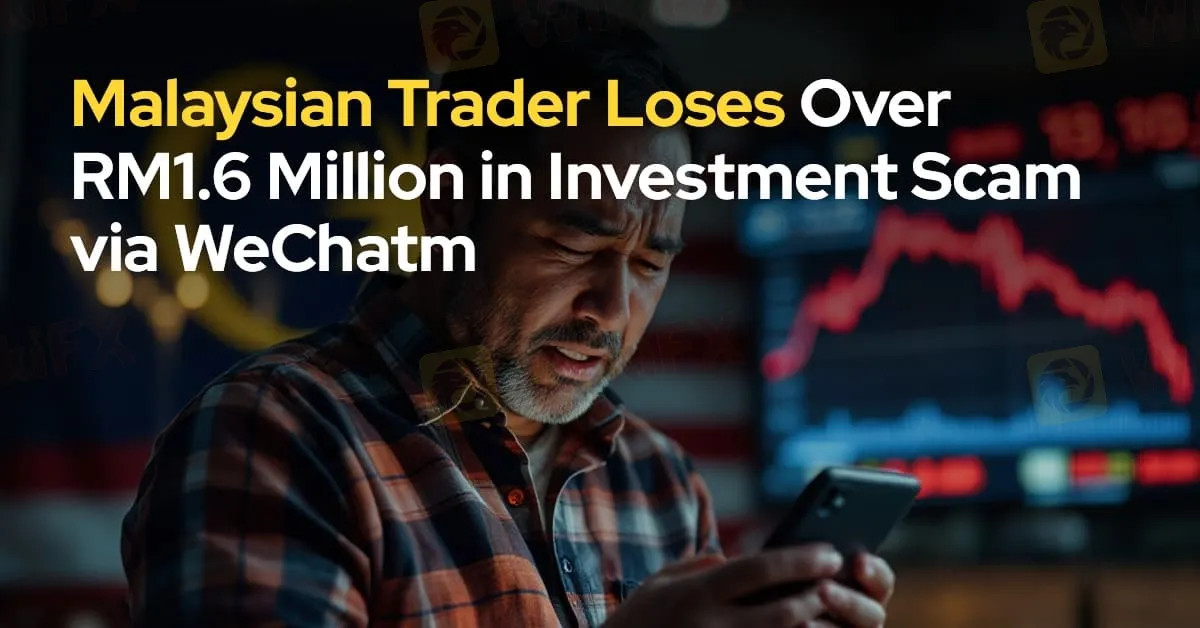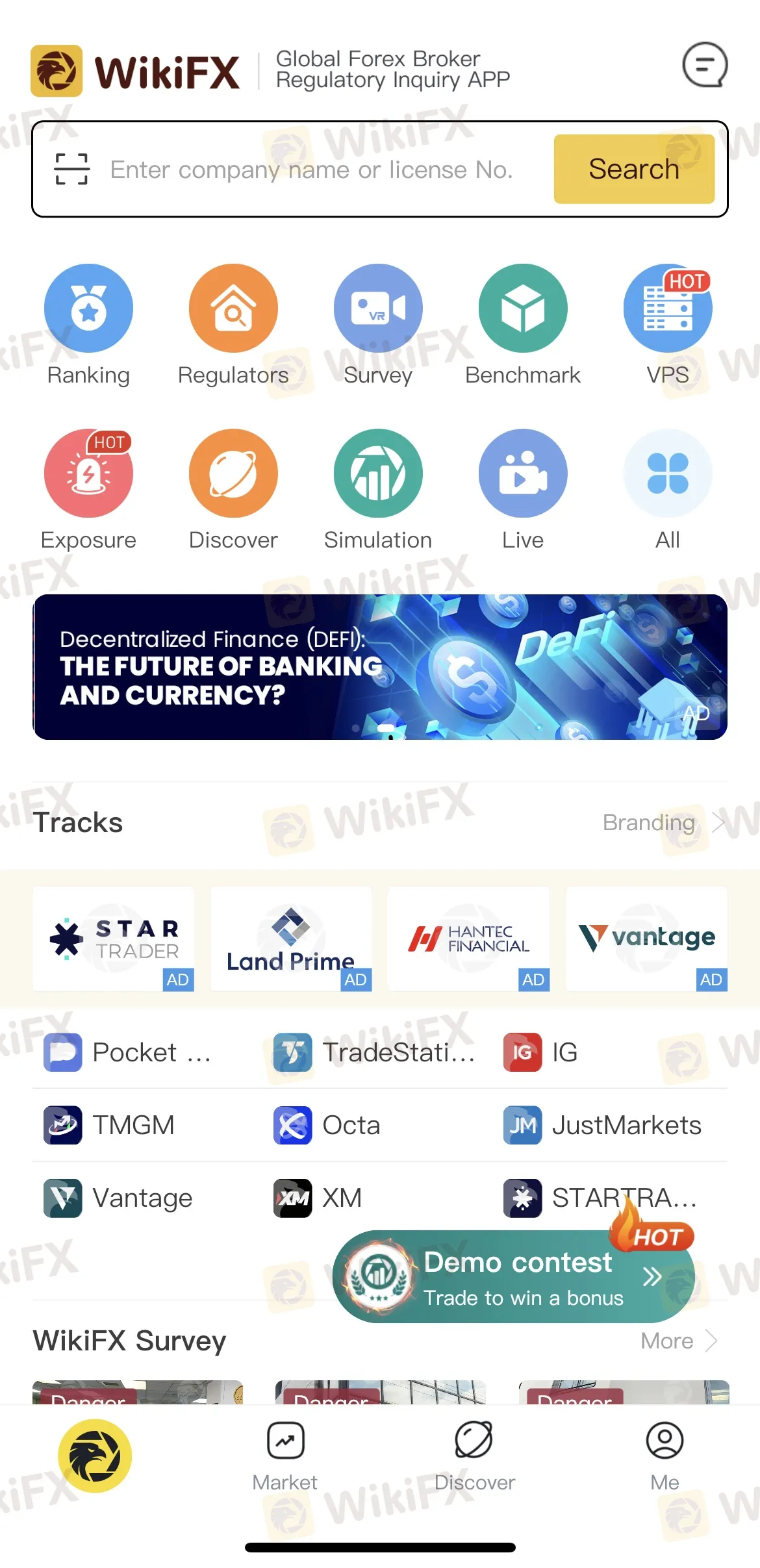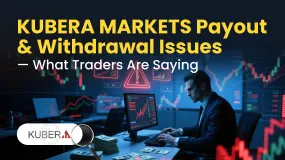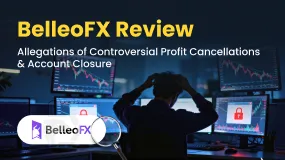Malaysian Trader Loses Over RM1.6 Million in Investment Scam via WeChat
Abstract:A 56-year-old trader from Gombak, Malaysia, recently lost more than RM1.6 million in a sophisticated online investment scam orchestrated through the popular messaging application, WeChat.

A 56-year-old trader from Gombak, Malaysia, recently lost more than RM1.6 million in a sophisticated online investment scam orchestrated through the popular messaging application, WeChat. Selangor police chief Datuk Hussein Omar Khan confirmed the case, which involved a fraudulent investment app that exploited the victim's trust and led to substantial financial losses.
The investigation revealed that the trader was first approached by the suspect via WeChat, where they convinced him to download an investment app linked to a supposed online trading platform. The trader was then encouraged to deposit funds into this platform. Shortly after transferring the funds, the app showed that his investment was generating profits. This initial success appeared promising, strengthening the victim's trust in the platform and motivating further engagement.
However, complications began when the trader attempted to withdraw his alleged profits. The app cited various administrative fees and taxes as obstacles to the withdrawal. Among the reasons provided were so-called “cross-border transfer fees” and additional tax requirements, which the suspect claimed were necessary for the withdrawal process. According to the police report, these excuses compelled the victim to make further payments in an attempt to retrieve his funds.

Over time, the trader made a total of 44 transactions, transferring RM1,688,725 across four separate accounts associated with the fraudulent platform. Only after his continued efforts to withdraw funds remained unsuccessful did he realise that the promised profits were a sham. The trader then filed a report with the Selangor Police on November 9, prompting an official investigation into the case.
In response to the incident, Selangor's Commercial Crime Investigation Department opened an investigation under Section 420 of the Penal Code, which addresses cheating and dishonestly inducing the delivery of property. This case has sparked concerns among the authorities, leading them to urge the public to exercise caution when engaging in online investment schemes.
The police chief highlighted the importance of verifying the legitimacy of investment platforms before transferring funds, advising individuals to consult Malaysias central bank, Bank Negara Malaysia, and the Securities Commission Malaysia to authenticate the credentials of stock investments. He emphasised that scams exploiting digital platforms have become increasingly sophisticated, making it essential for investors to conduct thorough checks before committing to any investment apps.

To prevent falling victim to fraudulent schemes like this one, using tools like WikiFX can be a game-changer. WikiFX provides detailed information on brokers, including regulatory status, customer reviews, and safety ratings, allowing users to verify the legitimacy of any investment platform before committing their money. With access to in-depth insights and risk alerts, WikiFX equips potential investors with the resources to make informed decisions and avoid unauthorised or unlicensed entities. By checking with WikiFX, users can confidently protect their savings and avoid the costly traps set by unscrupulous investment syndicates.

Read more

KUBERA MARKETS Payout & Withdrawal Issues — What Traders Are Saying
Did you fail to receive payouts from KUBERA MARKETS despite successfully passing the trading challenge? Failed to log in to the trading account despite passing both the evaluation and funded phase? Were you surprised by the sudden nominal fee norm to receive a funded account? Did you have to go through a long withdrawal process? We have investigated these user claims while preparing this KUBERA MARKETS review article. Keep reading!

BelleoFX Review: Allegations of Controversial Profit Cancellations & Account Closure
Have your past good experiences been marred by recent cases of profit cancellations by BelleoFX, a Mauritius-based forex broker? Has your trading account been blown away by the broker’s official upon your refusal to deposit more? Did the broker’s official tell you to deposit more, even if the earlier attempt turned unsuccessful? Did the high-return promise fall flat on the ground? In this BelleoFX review article, we have investigated these allegations. Take a look!

Is Dbinvesting Real or Fake: A Simple Check to See if This Trading Company Can be Trusted
When a trading company like Dbinvesting shows up and says it's an experienced partner with great deals like high leverage up to 1:1000 and different account types, it gets people's attention. But this appeal gets clouded by more and more serious complaints from users. This creates a big problem for people thinking about investing. The main question that needs a clear answer based on facts is: Is Dbinvesting legit, or is it a clever scam that could cause you to lose a lot of capital? This investigation wants to give you that answer. We will look past the company's marketing claims to study facts we can check. Our study will carefully look at the main worries: Is Dbinvesting watched over by a trustworthy authority? What are the real, honest experiences of people who used it? Are the many reports about withdrawal problems and Dbinvesting scam claims believable? To do this, we will use solid data from third-party checking services, such as WikiFX, including their complete regulatory check

Dbinvesting Complete Review (2026): A Detailed Look at Safety, Costs, and Customer Experiences
An Honest First Look When checking out a forex broker, the main question is always about trust: "Is Dbinvesting a safe place for my investments?" This review answers that question directly. Dbinvesting says it's an experienced broker that offers the popular MT5 platform, different account options, and access to worldwide markets. But as we look closer, we find a very different story. Our research found serious warning signs, especially its weak overseas regulation and a very low trust score from independent reviewers. This review gives you a short summary of what we found, comparing what the broker promises with the serious problems shown by real data and lots of user feedback. We want to give you a clear, fact-based answer to help you understand the major risks before investing. The difference between what it promises and what users actually report is the main focus of our investigation.
WikiFX Broker
Latest News
Arena Capitals User Reputation: Looking at Real User Reviews and Common Problems
Stop Letting Your Trading Rewards Gather Dust: A Limited-Time 30% Opportunity
Is FINOWIZ Safe or Scam? 2026 Deep Dive into Its Reputation and User Complaints
What Will US-Iran War Affect Stock Market: A Comprehensive Investor's Guide to 2026
FX Deep Dive: Dollar King Returns as Energy Shock Splits G10 Currencies
The 25-Day Tipping Point: Energy Markets Stare Down a Hormuz Blockade
Middle East Escalation Rocks Markets: Oil Surges while Brokers Tighten Leverage
Eightcap Review: Understanding Fees, Features, and Important User Warnings
Exnova Review 2026: Is this Forex Broker Legit or a Scam?
Moneycorp Problems Exposed: Fund Transfer Failures & Customer Support Complaints
Rate Calc
